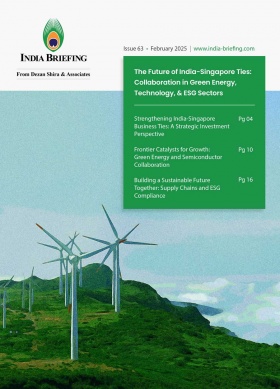SEBI Amends ICDR Regulations for Capital Raising and Disclosure Norms
SEBI notifies amendments to ICDR Regulations, 2018, on March 3, 2025, revising disclosure norms, rights issues, SARs, and public offer rules.
On March 3, 2025, the Securities and Exchange Board of India (SEBI) notified the SEBI (Issue of Capital and Disclosure Requirements) (Amendment) Regulations, 2025, revising its ICDR guidelines. The amendments aim to streamline public capital raising, reinforce disclosure standards, and align existing frameworks with corporate practices and investor protection needs. The amendment also addresses longstanding inconsistencies flagged in SEBI’s observations on offer documents and integrates recommendations from expert committees.
The amendments were published in the official gazette and came into effect on publication, except those related to rights issues, which have come into effect as of April 4, 2025.
Changes to promoter lock-in requirements
SEBI’s latest amendment includes promoter lock-in periods that have been aligned with the actual usage of issue proceeds. If a majority of fresh issue proceeds are intended for capital expenditure or related debt repayment, promoters must now retain their minimum contribution for three years. In other cases, the lock-in remains at 18 months. For excess promoter holdings, the lock-in period has been extended to one year from the earlier six months, where proceeds are linked to capital expenditure.
Advertisement and announcement norms
SEBI has also revised the timeline for public announcements. Following the filing of the draft offer document, the issuer must now make a public announcement within two working days. Also, the earlier requirement of separate pre-issue and price band advertisements has been merged into a single advertisement to be published at least two working days before the issue opens. The draft document must remain open for public comments for 21 days from the date of this announcement.
Streamlining of the rights issue process
Removal of threshold for ICDR applicability
The rights issue process has undergone substantial simplification. SEBI has eliminated the earlier size threshold of INR 500 million (US$5.87 million), which previously determined the applicability of ICDR norms. Now, all rights issues by listed issuers must comply with ICDR regulations, regardless of the issue size. This move brings uniformity to the disclosure and compliance obligations across the market.
Procedural and documentation revisions
The documentation and approval process for rights issues has also been made more efficient. Issuers are no longer required to file the draft letter of offer with SEBI. Instead, the document is to be filed directly with the relevant stock exchanges. This step removes a substantial layer of regulatory delay while preserving investor access through stock exchange platforms. The need to appoint a merchant banker has also been removed under the revised Regulation 69. Responsibilities such as ensuring regulatory compliance and facilitating allotment are now redistributed among the issuer, registrar, and exchanges.
Despite the easing of procedures, SEBI has added further obligations to ensure transparency. Regulation 71 has been revised to specify the documents that must be submitted to the stock exchange. These include the draft letter of offer and promoter identity details (such as Permanent Account Number/PAN, bank and passport details for individuals, or company registration data for corporate promoters). In the case of convertible debt instruments, a due diligence certificate from the debenture trustee is also required. The final letter of offer must be filed with both SEBI and the exchanges, with SEBI responsible for public dissemination.
Revised timelines and specific investor disclosures
Rights issue timelines have also been tightened. According to SEBI Circular Faster Rights Issue (Circular No. SEBI/HO/CFD/CFD-PoD-1/P/CIR/2025/31) dated March 11, 2025, the entire rights issue process must now be completed within 23 working days from board approval. This replaces the earlier flexible schedule and provides greater certainty to investors.
A notable change is the introduction of Regulation 77B, which allows promoters to renounce their rights entitlements in favor of specific named investors. These investors must apply before 11:00 A.M. on the first day of the issue, and the issuer must notify the stock exchange by 11:30 A.M. Issuers can also allocate under-subscribed portions of the issue to such investors, provided this intention is clearly disclosed in the letter of offer and advertisements. This change offers strategic flexibility while maintaining disclosure safeguards.
To prevent misuse of the simplified framework, SEBI has introduced a safeguard under Regulation 61(d). Issuers whose equity shares are under disciplinary suspension as of the reference date will not be eligible to make rights issues. This discourages companies facing regulatory action from using rights issues as a short-term liquidity solution.
Expanded disclosure and reporting obligations
Timely reporting of transactions and placements
SEBI has focused heavily on improving pre-issue and pre-IPO transparency. Revisions to Regulations 54 and 95 now require issuers to report all securities transactions by promoters and promoter groups within 24 hours of occurrence from the date of draft filing until issue closure. Additionally, any pre-IPO placements disclosed in draft documents must be reported to stock exchanges within 24 hours of the transaction.
Litigation and agreement disclosures
To address material risks to investors, the amendments also mandate detailed disclosures of any agreements that impact management control or impose legal obligations on the issuer. Issuers must also disclose all criminal proceedings against key management personnel and any regulatory actions taken against them. Material civil litigations must now meet SEBI’s objective monetary thresholds, harmonized with those under the SEBI Listing Regulations.
Financial and employee-related disclosures
On the financial side, SEBI has enabled voluntary disclosure of proforma financials related to recent acquisitions or divestments, even if they fall below the materiality threshold. This is intended to provide investors with a fuller picture of financial performance, especially for companies undergoing structural change. Supporting documentation must be certified by the statutory auditor or a peer-reviewed chartered accountant.
Further, issuers must now provide expanded information on employee benefit schemes, including SARs, in their IPO offer documents. Disclosure of standalone financials for working capital utilization has also been clarified, requiring consistency between audited standalone and restated consolidated financials where adjustments have occurred.
Proforma financials refer to unaudited, hypothetical financial statements used to show what a company’s financials would look like after a major event such as a merger or acquisition.
Summary
The SEBI ICDR (Amendment) Regulations, 2025, reflect a progressive recalibration of India’s capital markets regulatory framework. By easing procedural hurdles, introducing tighter disclosure timelines, and expanding compliance requirements, the amendments seek to balance market efficiency with investor protection.
For listed companies, these changes necessitate a reassessment of internal controls, disclosure systems, and transaction reporting practices. For investors, especially those participating in IPOs and rights issues, the reforms provide greater transparency, faster issue execution, and improved safeguards. The emphasis on timely reporting, inclusion of specific investors, and new norms around SARs underscore SEBI’s intent to strengthen capital formation while guarding against market abuse.
(US$1 = INR 85.17)
About Us
India Briefing is one of five regional publications under the Asia Briefing brand. It is supported by Dezan Shira & Associates, a pan-Asia, multi-disciplinary professional services firm that assists foreign investors throughout Asia, including through offices in Delhi, Mumbai, and Bengaluru in India. Readers may write to india@dezshira.com for support on doing business in India. For a complimentary subscription to India Briefing’s content products, please click here.
Dezan Shira & Associates also maintains offices or has alliance partners assisting foreign investors in China, Hong Kong SAR, Dubai (UAE), Indonesia, Singapore, Vietnam, Philippines, Malaysia, Thailand, Bangladesh, Italy, Germany, the United States, and Australia.
- Previous Article MCA Proposes Expansion of Fast-Track Merger Rules in India
- Next Article India Gains Temporary Relief as Trump Suspends Reciprocal Tariffs for 90 Days








